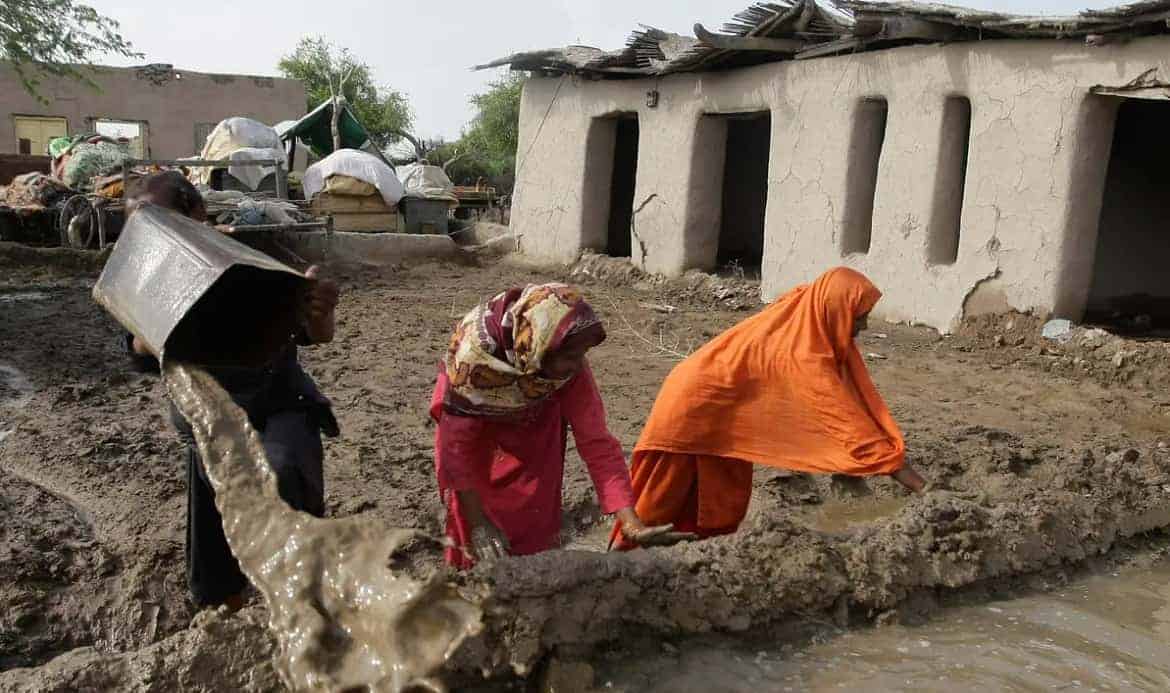
Key Areas for Promoting Gender Equality in Climate Action.
Promoting gender equality in climate action is imperative to address the diverse impacts of climate change and ensure that everyone, particularly women, can actively participate in and benefit from climate-related initiatives. By integrating a gender perspective, we can strive for inclusive and effective solutions that address both climate change and gender inequalities.

- Education and awareness:
To promote gender equality in climate action, it is essential to prioritize education and awareness. Women often face greater vulnerabilities to climate change due to social norms, economic constraints, and limited access to resources. By providing information about the specific impacts of climate change on women and their rights, we can empower individuals and communities to take informed action. Educating women about climate change can enhance their understanding of the linkages between environmental degradation, gender inequalities, and socioeconomic challenges. - Capacity building and empowerment:
Empowering women is key to promoting gender equality in climate action. Enhancing the capacities of women to actively engage in climate-related decision-making processes and leadership roles is crucial. By providing training and mentorship opportunities, women can gain the necessary knowledge and skills to contribute meaningfully to climate action. This can include capacity building in areas such as renewable energy, sustainable agriculture, climate finance, and policy advocacy. - Gender-responsive policies and strategies:
Incorporating a gender perspective into climate policies and strategies is necessary to ensure equal opportunities and benefits for women. Gender-responsive policies recognize the different roles, needs, and responsibilities of women and men in relation to climate change. They aim to address the specific challenges faced by women and promote their participation and leadership in climate action. This can include measures such as gender equality targets, gender impact assessments, and gender-responsive budgeting for climate-related projects. - Women’s entrepreneurship and economic empowerment:
Promoting women’s entrepreneurship in sustainable sectors can play a significant role in advancing gender equality in climate action. Supporting women-led businesses and initiatives not only contributes to economic empowerment but also drives innovative solutions to mitigate and adapt to climate change. By providing financial resources, technical assistance, and market access, we can create an enabling environment for women to thrive as entrepreneurs and agents of change. - Addressing gender-based violence:
Climate change can exacerbate existing gender inequalities, including gender-based violence. In times of disaster and displacement, women and girls are more vulnerable to violence, exploitation, and trafficking. To promote gender equality in climate action, it is crucial to create safe spaces, provide support services, and raise awareness about gender-based violence in the context of climate change. Efforts must be made to address the root causes of violence and ensure the protection of women’s rights in climate-related programs and interventions. - Strategic partnerships and collaborations:
Promoting gender equality in climate action requires collective efforts and strategic partnerships. Governments, civil society organizations, and the private sector should collaborate to leverage their resources, expertise, and networks to integrate gender perspectives into climate policies and actions. These partnerships can promote knowledge sharing, institutional capacity building, and the implementation of gender-responsive projects. By working together, stakeholders can foster inclusive and sustainable solutions to address climate challenges effectively.

7. Monitoring and evaluation:
Monitoring and evaluating progress is essential to hold governments and organizations accountable for their commitments to gender equality in climate action. Regular data collection and analysis, including sex-disaggregated data, can help track gender-specific impacts and outcomes of climate interventions. Reporting on progress and challenges in mainstreaming gender in climate policies and actions can provide insights for improvement and ensure continuous efforts towards gender equality.
All Categories
- Agricultural Methods
- Agriculture and Women Small Farmers Rights Awareness
- Climate Change
- Disable and Human Rights
- Disable Jobs
- Donation
- Education
- Health Issues
- Organic Foods
- Organic Vegetables
- Orphans Children
- Plastic production and disposal
- Services
- Sinking in Scarcity
- Success Stories
- Uncategorized
- Waste Management
- Women Rights
- Youth Empowerment




